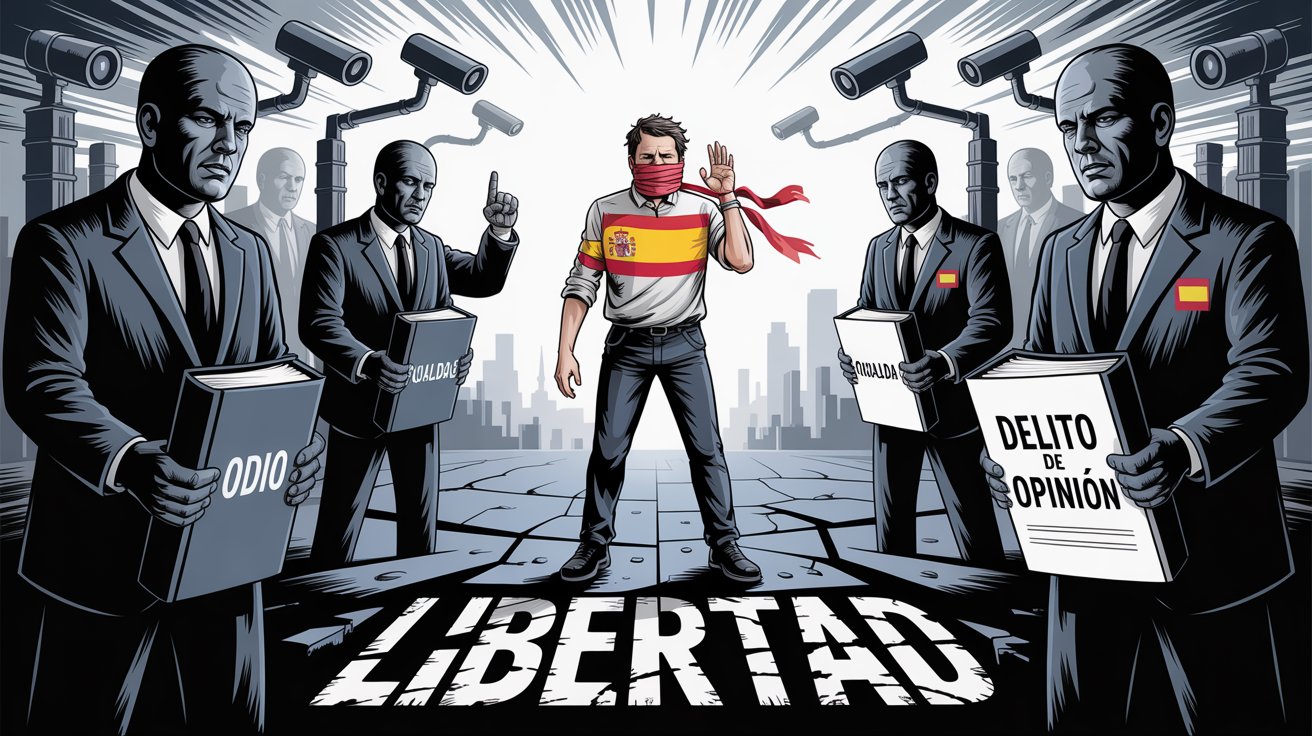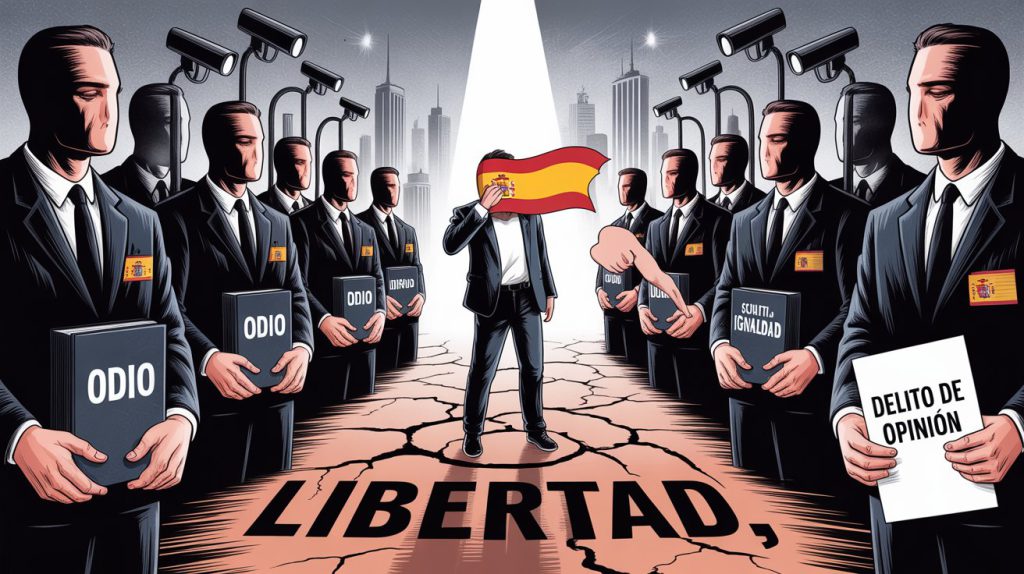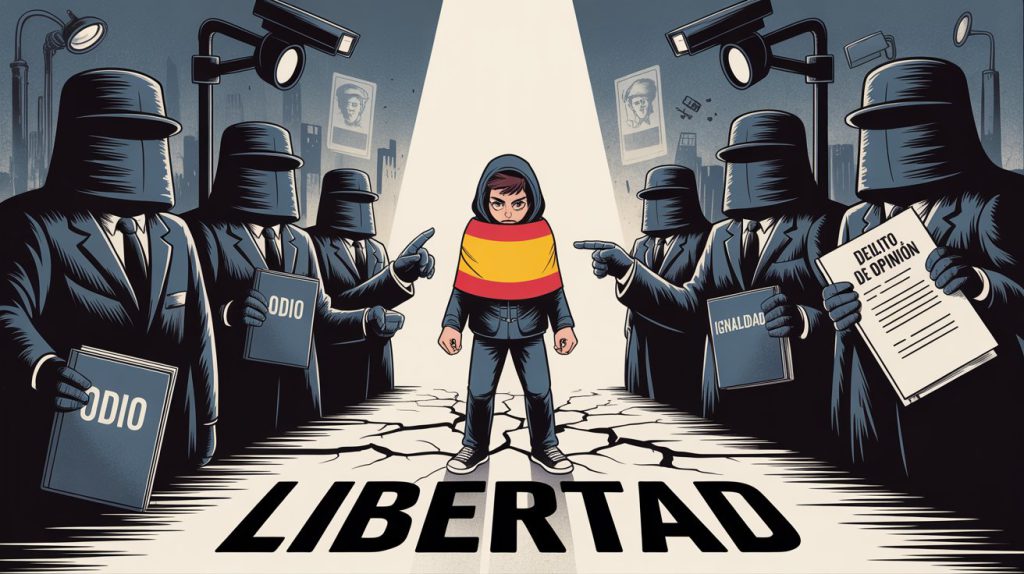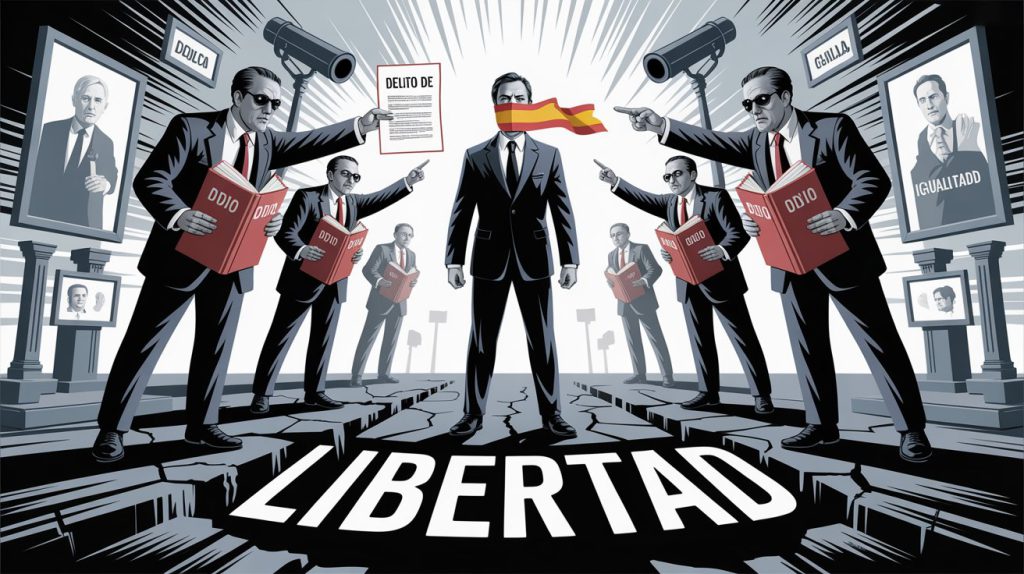
Immoral state of socialism
Spain and the Drift of the System: When Socialism Legislates Against Freedom
In recent years, Spain has experienced a legislative evolution that reflects the growing interventionism of a State that, under the guise of socialism, increasingly interferes in the private lives, thoughts, and expression of its citizens. This transformation, driven by parties and coalitions with socialist ideologies, has generated a legal and bureaucratic structure that dangerously strays from the principles of individual liberty, equality before the law, and personal responsibility. One of the most evident symptoms of this trend is the enactment of laws such as the so-called “Equal Treatment and Non-Discrimination Law,” incorrectly known as the Zerolo Law, and other legislation against so-called “hate speech,” where the judgment of a public official or a state “expert” can determine who has committed a crime of opinion.
For libertarian thought—which defends the sovereignty of the individual over the social engineering of the State—this is nothing more than a modern form of institutionalized censorship. A return, camouflaged as do-goodism, to authoritarian forms of speech control. Because when the government dictates which ideas are acceptable and which deserve punishment, freedom dies. And it does so to applause, as Orwell warned, with kind words that hide a harsh reality: a therapeutic and paternalistic state is being built, one that doesn’t protect but rather infantilizes.
The socialist system: the utopia that demands submission

Socialist-style systems have historically failed to offer sustainable freedom and prosperity. Not because the idea of social justice is inherently evil, but because its implementation requires sacrificing people’s free will in favor of a centralized state design, always supposedly wiser than the ordinary individual.
In Spain, this system has mutated into a form of bureaucratic and clientelist socialism, where the state apparatus grows without limits and extends its tentacles into all aspects of society: from education to language, from business to sexuality. What began as a promise of inclusion has ended up being a mechanism for creating obedient, ideologically formatted citizens, incapable of dissenting without risking being singled out or penalized.
Hate Laws: Protection or Political Weapon?
One of the most dangerous examples of this drift is the use of the concept of “hate crime.” In theory, these laws seek to protect vulnerable groups from attacks based on prejudice. But in practice, they have become a political and moral weapon, directed not against actual acts of violence, but against thought and expression that deviates from official discourse.
Who decides what hate constitutes? What differentiates legitimate ideological criticism from an intolerant attack? Instead of a clear legal framework, laws leave room for the subjective interpretation of the judge, the prosecutor, the public official. In short, a state that places itself in the role of moral arbiter. And this is not justice: it is indoctrination in full regalia.
Even more serious is that these laws turn ordinary citizens into potential criminals: parents who disagree with sex education in schools, teachers who question certain historical narratives, journalists who investigate identity lobbies, or citizens who dare to make uncomfortable jokes on social media. The result is a climate of fear and self-censorship, where freedom of expression is no longer protected, but rather conditioned on not upsetting groups favored by political power.
The Civil Servant as Moral Judge
The authoritarian drift of the Spanish socialist system reaches its climax when it grants public employees a power that does not belong to them: deciding, according to their “judgment,” whether something constitutes a discriminatory act, a hate crime, or an ethical breach. This occurs, for example, in equality offices, inclusive language observatories, school gender protocols, or anti-bullying commissions with an ideological perspective.
Who controls the controller? What training does the bureaucrat have that qualifies them to be a censor of ideas? What neutrality can be expected from institutions whose existence depends precisely on the “discovery” of cases of discrimination?

The result is a new class of ideological commissars: officials who, without the need for judges or guarantees, can open files, sanction, withdraw subsidies, or generate social stigma simply because they interpret someone as having said something offensive or “improper.” We are talking about subjective, arbitrary, emotional justice, transformed into state policy.
Freedom is not negotiable.
The only just law is one that protects individual freedom without imposing a moral model from power. A law that acts against real crimes, not against ideas, opinions, or beliefs. A law that punishes violence, but never dissent.

Spain needs a profound paradigm shift. Alternating parties is not enough. We must dismantle this edifice of socialist paternalism that has been erected on the illusion of protection. Because the price of this “security” is servitude.
A people who allow themselves to be told how they should speak, think, and feel is a people who have surrendered their dignity. And without dignity, there is no citizenship: only subjects.
It is time to regain the courage to speak one’s mind without fear of the State. To remember that freedom is not a concession from the government, but a natural right of the individual. And that when power oversteps its bounds, disobedience is not only legitimate: it is a moral obligation.





